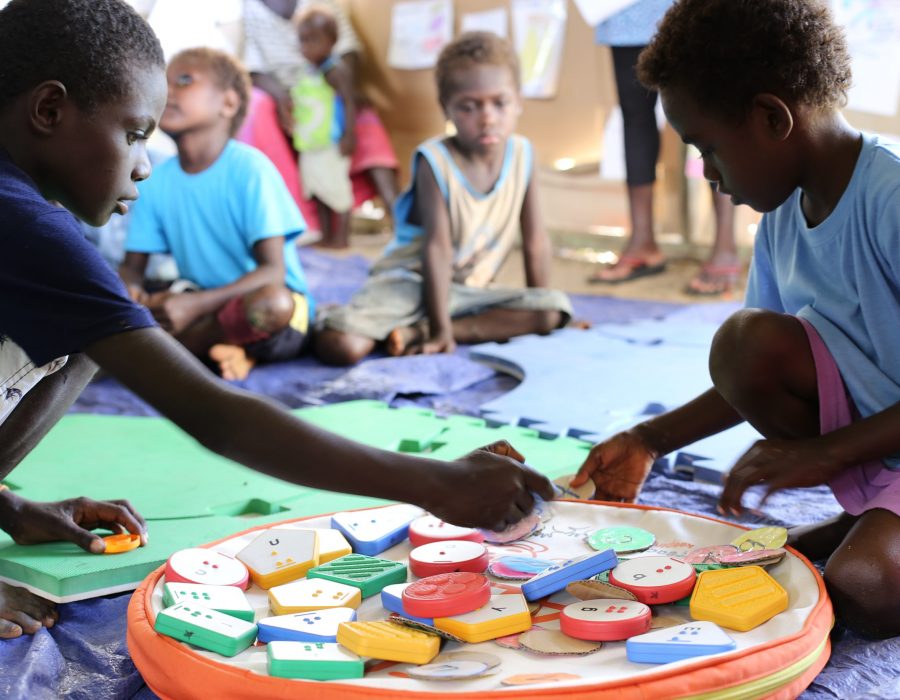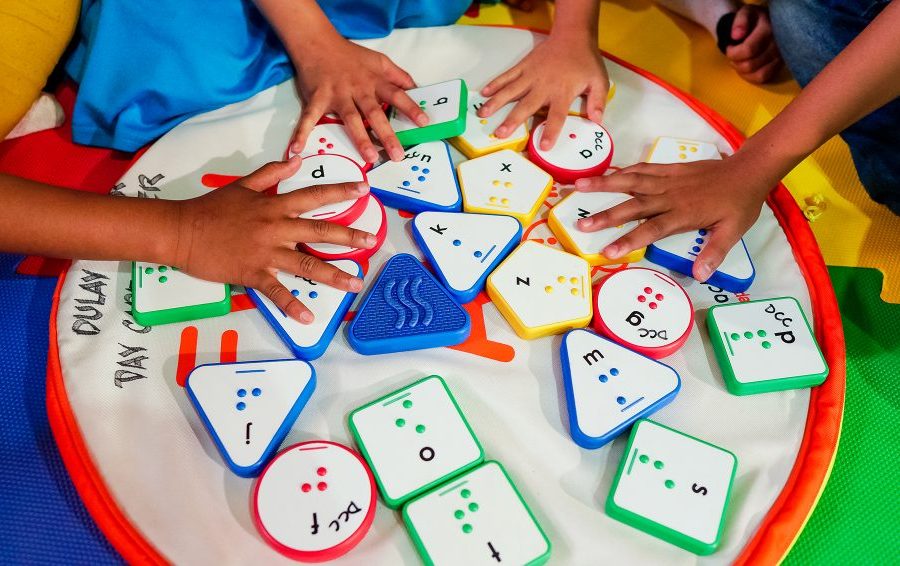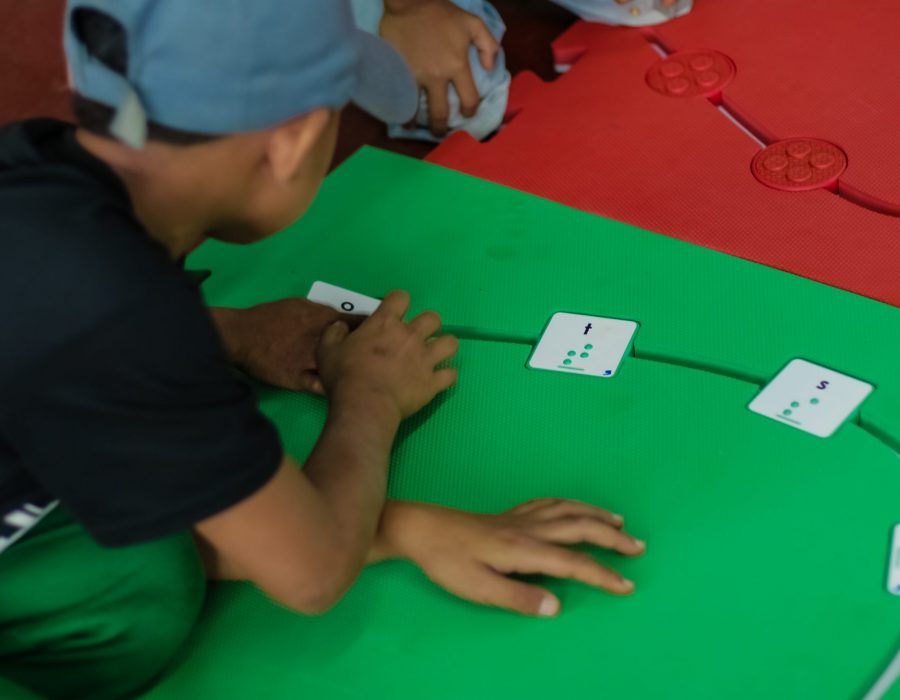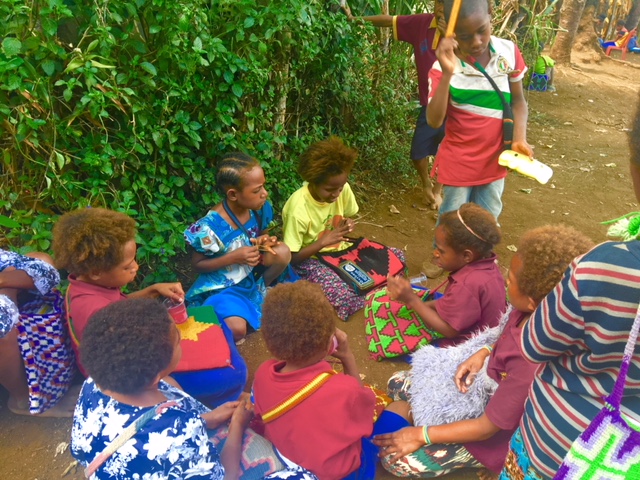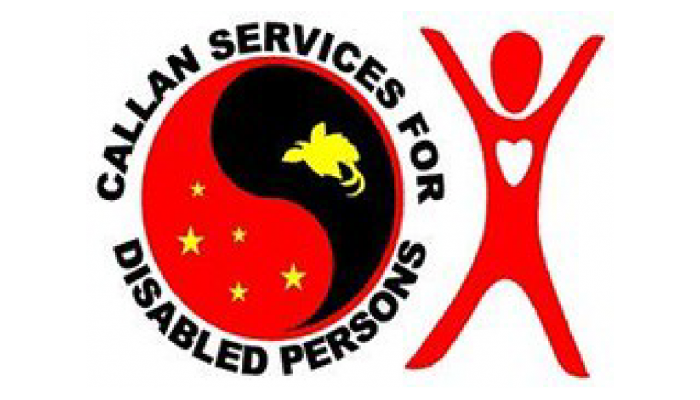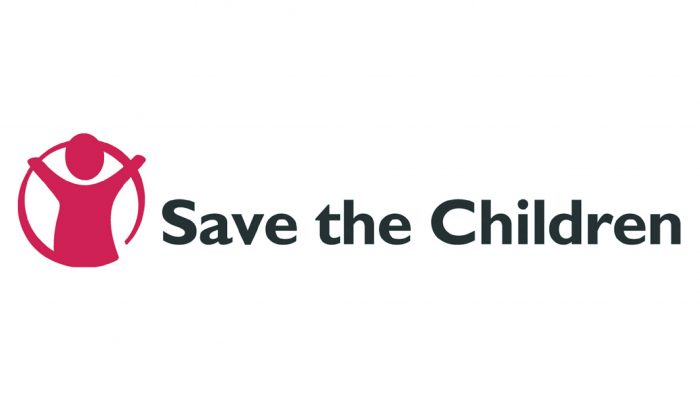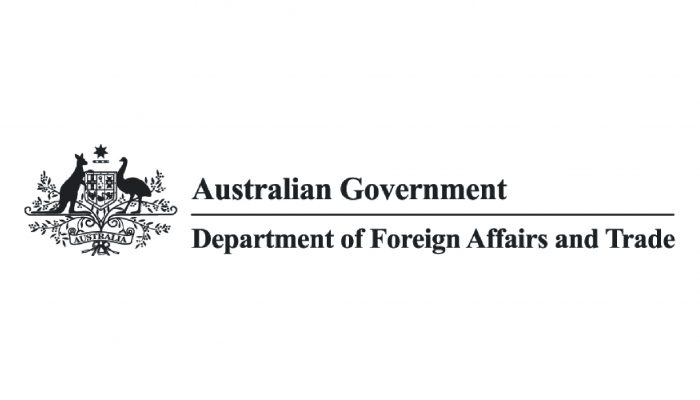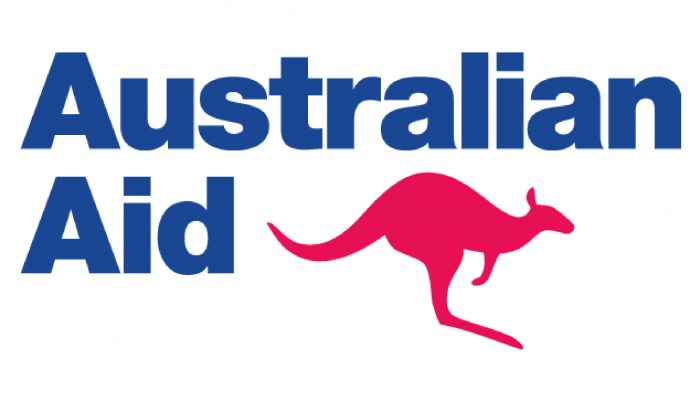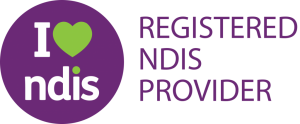

Project description
In Papua New Guinea, many schools do not have access to quality education. Gender inequality, social exclusion and the lack of teaching and learning resources are all factors that prevent children reaching important milestones in their learning.
Reach and Match pilot program is currently being implemented in Papua New Guinea through the Australian DFAT funded Rapidly Improving Standards in Elementary (RISE) program in partnership with Save the Children and Callan Services. The program helps to address their educational needs by training early childhood teachers on inclusive education practices and provided them with Reach & Match Inclusive Education kits as a structured play-based curriculum.
Key achievements
-
The program is supporting 177 children (85 females; 92 males) aged 3-7 years, of which 62 (35%) are children with disabilities (27 females; 35 males), throughout eight ECCE and Inclusive Education Resource Centres (IERCs) in three provinces of PNG.
-
IERCs reported that for children with disabilities (CWD), the Reach & Match Learning Kit worked well for those with hearing and vision impairment, learning difficulties, behaviour problems and multiple disabilities.
-
The first quarterly review (December 2018) of the Reach and Match pilot found that facilitators were utilising Reach and Match activities two to three times per week and that dramatic learning improvements were observed in children with disabilities as a result of their improved engagement.
-
Parents learned how to use the new Reach & Match kits at the National Department of Education roadshow and teachers were educated on inclusive education practices.
-
Improved school readiness for young children and enhanced quality of teaching in literacy and numeracy.
Please contact us if you are interested in partnering with us.
Testimonials
“The feedback from the pilot case was amazing because it is play-based; it is pre-numeracy and pre-literacy training. One of the teachers from Arawa has been working with children in the 4-8 year age group for a couple years trying to teach them the alphabet and they have been staring at her blankly but through using this play-based approach they have learned the alphabet within 3 weeks. They have loved it, it uses games, exercises [and] is fun whilst being age appropriate.”
Jenny Griffiths – Inclusive Education Advisor, Callan Services

